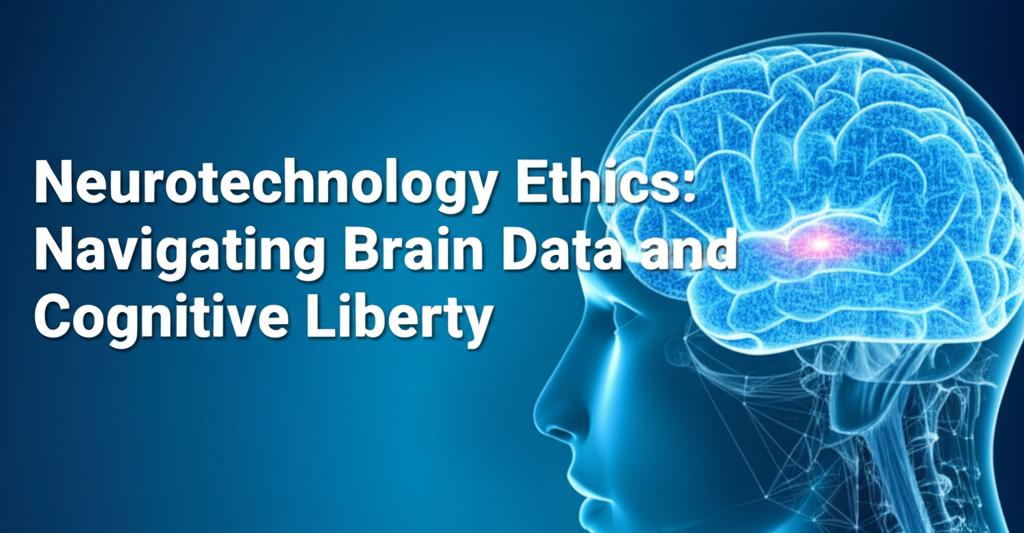The realm of neurotechnology is experiencing an unprecedented surge, flinging open doors to understanding and interacting with the human brain in ways previously confined to science fiction. From therapeutic interventions for neurological disorders to enhancing cognitive abilities, the potential benefits are immense. However, this rapid advancement pulls us into a complex ethical landscape, demanding careful navigation of brain data and the very essence of cognitive liberty.
At the heart of this evolving field lies "neurodata" - the rich and intricate information gleaned from our neural activity. This isn't just any data; it's a window into our thoughts, emotions, and even our subconscious. As brain-computer interfaces (BCIs) and other neurotechnologies become more sophisticated and accessible, the sheer volume and sensitivity of this data raise profound privacy concerns. Who owns this data? How is it being collected, used, and protected? The potential for misuse, from targeted advertising exploiting our deepest preferences to more insidious forms of surveillance and manipulation, is a growing unease.
The conversation extends beyond data privacy into the core of "cognitive liberty" – essentially, our right to mental self-determination. This encompasses the freedom to control our own thoughts and mental processes, free from unconsented interference. As neurotechnologies develop the capacity not just to read, but also to influence or alter brain activity, the implications for individual autonomy and free will are significant. Questions arise about the potential for coercion, the blurring of lines between human and machine, and the very definition of personal identity when our brains are intricately linked with external technologies.
The "dual-use" nature of many neurotechnological innovations further complicates the ethical picture. Technologies developed with benevolent therapeutic intentions, such as treating depression or restoring lost sensory functions, could potentially be repurposed for non-therapeutic enhancements or even for more troubling applications in areas like employment or criminal justice. This necessitates a proactive approach to governance, ensuring that ethical considerations are embedded from the earliest stages of research and development.
Recognizing these challenges, international bodies and experts are increasingly calling for robust ethical guidelines and regulatory frameworks. UNESCO, for instance, has highlighted the need to protect against the abuse of cognitive biases and ensure that neurotechnology doesn't exacerbate existing social inequalities. Calls for "neurorights" are gaining traction, proposing new human rights to safeguard mental privacy, integrity, and cognitive liberty.
Ensuring responsible innovation means fostering transparency in how neurodata is handled, establishing clear lines of accountability, and empowering individuals with control over their own brain information. This involves developing strong data security measures and promoting public education to enable informed consent and critical engagement with these powerful new technologies.
The journey into the future of neurotechnology is undeniably exciting, offering transformative possibilities for medicine and human augmentation. However, it's a path that must be trodden with a profound sense of ethical responsibility. Striking the right balance between fostering innovation and safeguarding our most intimate data and our fundamental right to cognitive liberty will be one of the defining challenges of our time. The dialogue around neurotechnology ethics is not just a technological or scientific debate; it's a societal one that requires the engagement of researchers, policymakers, ethicists, and the public alike to ensure that these advancements serve humanity in a just and equitable way.

